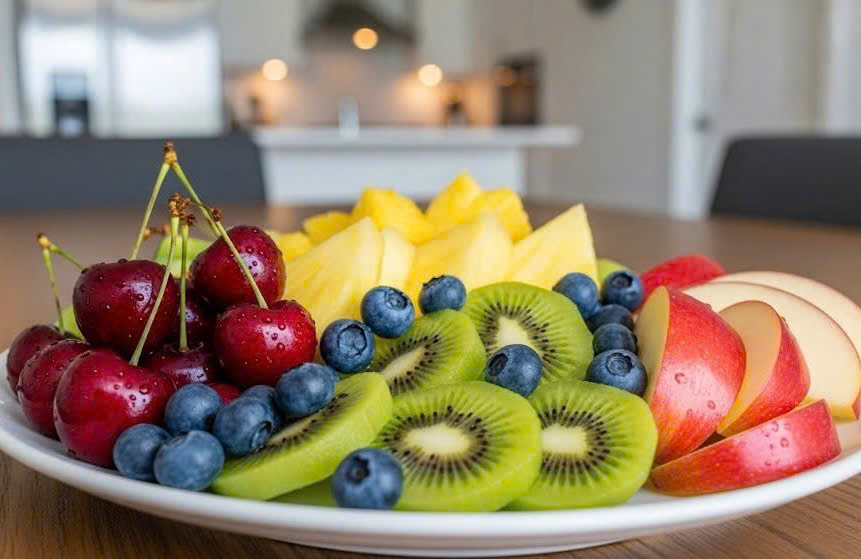Gout is a purine metabolism disorder that causes high uric acid levels in the blood, forming urate crystals that deposit in joints, causing pain, swelling, redness, and limited mobility. Sufferers often experience intense pain at night or early morning, accompanied by joint swelling and heat, especially in the big toe, ankle, and knee.
Doctor Nguyen Anh Duy Tung from Nutrihome Nutrition Center, says that in addition to medical treatment, a diet rich in vitamins, antioxidants, and low in sugar and purines can reduce uric acid, helping to prevent disease progression.
Cherries contain anthocyanins, powerful antioxidants that reduce inflammation and lower uric acid levels in the blood. As a result, cherries can limit the frequency and severity of gout flare-ups.
Pineapple is rich in bromelain, a natural enzyme with anti-inflammatory properties that reduces joint swelling. The vitamin C content in pineapple also increases uric acid excretion.
Kiwi is rich in vitamin C, which aids in dissolving and eliminating uric acid through urine. The potassium in kiwi helps balance electrolytes and reduces the risk of kidney stones, a complication that can occur in people with gout.
 |
Fruits rich in minerals and antioxidants help reduce acid and prevent gout recurrence. Photo: Trong Nghia |
Apples contain the antioxidant quercetin, which has anti-inflammatory effects, and pectin fiber, which promotes cholesterol and weight control, reducing pressure on joints.
Watermelon, with its high water content, contributes to increased urination and uric acid elimination. It also has mild alkaline properties that help neutralize acid in the body.
Blueberries are rich in anthocyanins and vitamin C, which have antioxidant properties, protecting joints and blood vessels while improving kidney function.
Individuals with gout should limit their intake of red meat, seafood, organ meats, alcohol, and sugary drinks. Doctor Duy Tung recommends that patients consult with a musculoskeletal specialist to determine the severity of their condition and receive advice on a suitable diet. Patients should not self-medicate with supplements or uric acid-lowering drugs of unknown origin, as these can cause side effects on the liver and kidneys or interact with current medications. Depending on the situation, doctors may prescribe uric acid-reducing medication, anti-inflammatory drugs, combined with a suitable diet.
Supplementation with nutrients such as eggshell membrane extract, undenatured type II collagen, hydrolyzed collagen peptides, chondroitin sulfate (a major component of the extracellular matrix structure), and turmeric root extract is beneficial for health. These nutrients help reduce pain and inflammation, decrease swelling, and limit the risk of joint degeneration due to gout.
Trong Nghia
| Readers can submit their nutrition questions here for doctors to answer. |












